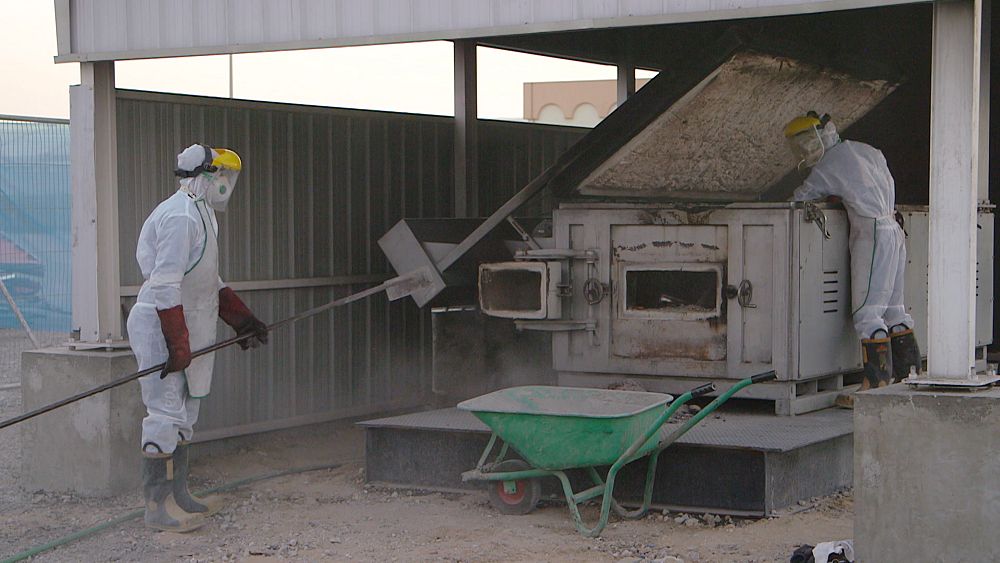The COVID-19 pandemic has affected many aspects of people’s lives including their health, ability to socialise, and also the environment.
Mounting medical waste is one of the major causes impacting natural surroundings.
This is in a large part due to the use of plastic-based personal protective equipment (PPE) according to the United Nations, which says the amount of medical waste has multiplied during the pandemic.
The city of Wuhan produced 247 tonnes of medical waste from February to March, which was six times the normal rate according to the American Chemical Society.
In the GCC region, 150 tonnes of medical waste was generated daily in 2019 and before the pandemic, according to environmental group EcoMENA.
The emirate of Dubai treated 350 tonnes by the end of April 2020, the government reported.
Conscious disposal
The proper and correct handling of sewage and garbage from homes, schools and healthcare facilities can help prevent the transmission of the virus that causes COVID-19, according to the World Health Organization (WHO).
This is a matter that Tadweer, Abu Dhabi’s waste management company, is not treating lightly, says projects director Abdul Mohsin Al Katheeri.
“The moisture and virus can go and be released into the ground water table, into the soil and agriculture,” he explains to Inspire Middle East’s Salim Essaid.
Every step of the medical waste disposal process is given special attention he adds.
For example, medical waste from Abu Dhabi’s COVID-19 field hospitals is sealed in internationally recognised red plastic bags and placed in secure bins.
The containers are sanitized along with the refrigerated truck they travel in, one of 16 operating in the capital.
The trucks deliver the sealed bins to one of three facilities in the capital, that together can treat up to 16 tonnes of medical waste per day.
Inspire Middle East was given exclusive access to one of Tadweer’s COVID-19 waste management sites in Abu Dhabi.
The incinerator used at the facility can burn medical waste at up to 1200 degrees Celsius, meeting international emission standards to prevent the release of toxic carcinogenic dioxins into the atmosphere.
Gas cleaning equipment is also used to treat the outgoing air.
The ash residue produced as a result is safe-to-touch, biodegradable, and safe to transport to landfills without damaging the earth.
Powering education
The WHO cites lack of awareness as one of the most common problems with healthcare waste management.
Especially during an unprecedented pandemic, which has companies like Tadweer using education to protecting themselves, the community, and the environment.
“Fear was the most challenging thing that faced us, that faced our workers,” says Al Katheeri.
To overcome possible employee trepidation, he says, Tadweer has issued regular workshops to communicate safe practices that are yielding positive results.
“Zero cases have happened within our organisation,” he adds.
Non-wasteful solutions
Tadweer has rolled-out three mobile incinerators that can travel and treat medical waste on-site in order to minimise the amount of time potentially hazardous medical waste exposed.
Some companies such as Immensa Technology Labs are using recyclable materials to reduce the amount of medical waste produced in the first place.
The Sharjah based engineering company is 3D printing up to 25,000 protective masks weekly that are made from Polylactic Acid (PLA), a biodegradable plastic.
Once used, the corn-based material can be more safely melted to generate new masks, protective glasses, and even construction materials to combat the pandemic.
SEEN ON SOCIAL MEDIA: DISCOVERY
Nezlina from Indian framed her husband hunting for cardboard boxes to repurpose








